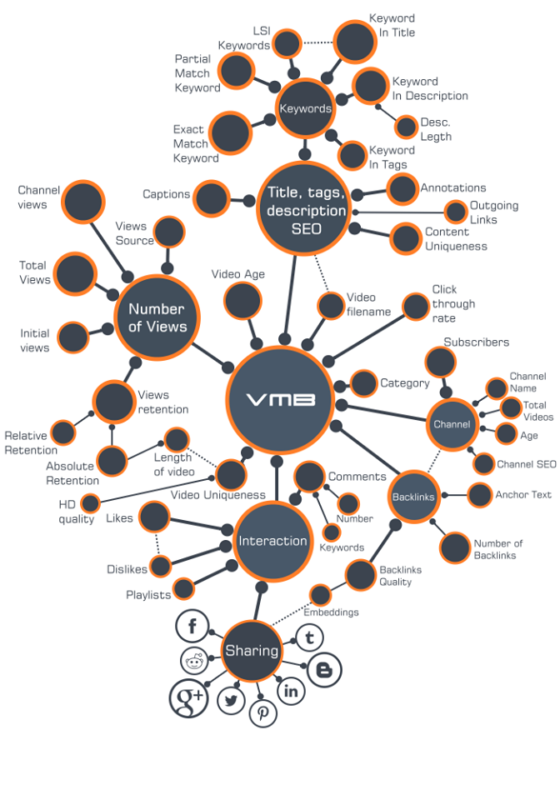Want to be number one for your keyword or keyphrase? You can increase targeted Web traffic with these ideas on how to get high ranking on Google Search.
It’s really important to follow good ‘white hat’ principles. That means, don’t break the rules. Here, please use my guidelines for on-page optimization and off-page optimization in our Business School’s free SEO course. You’ll find it very easy to follow.
In that online course about SEO you will immediately see this large infographic about the myriad of ranking factors being used at YouTube. Don’t be shocked, perplexed or put off. Over time, you’ll realize the steps that you will be mastering in the process of how to get high ranking on Google Search! (And while we’re discussing this infographic, if you get it right at YouTube, for ranking one video in the top three, it will flow over to the top of Google.)

How to Get High Ranking on Google Search
Keyword Research
The first step is to do your keyword research. You’ll want a focus keyword / keyphrase that is not too popular. A search number of about 20,000 to 50,000 per month is good. With not too many competitors. Look for the long tail combinations, using modifiers, like: ‘best,’ ‘best price on …’ ‘discount on…’ or ‘how to,’ or a local town or city name included in the key phrase: ‘Plumber in Las Vegas 24 hour emergency service,’ for example. Think clearly about what search terms people are actually using to find the product or service that you offer.
Improve Web Page Downloading Speed
A page speed of less than 0.7 seconds is required these days. Searchers will click away if the first fold of the page doesn’t reveal what they’re looking for. They won’t wait for a slow download. Instant gratification is the name of the game now.
User Experience (UX)
Elapsed time on your Web page is a good indicator of user experience. Google Analytics will tell you how long the average viewing time was, on a page basis. You want good stickability, and a video in the first fold of the page can help with this timing factor.
High Quality Backlinks
Allow backlinks to be placed naturally, pointing to your page of Web content. Don’t over solicit these links and don’t purchase them. Google analyzes all your incoming links and they must be clean and ‘from a good neighbourhood.’ Writing high quality guest posts on reputable blogs and sites is a good method.
High Quality, Useful Content
Content is still King. Optimize it for your main keywords. Use videos and images where the titles and filenames reflect the specific topic that your content is written about. Remember to put ‘relevance’ first. Just as Google does!
Use Of Headings
Use the ‘H1’ heading only once, at the top of the page, then drill down into sub-heads as I have done, breaking the subject up into neat sections. The ‘H3’ is great for this. ‘H4’ is in all-caps, then ‘H5’ is useful for the minor sub-sections.
Length Of Content
Write as much as you can. While there is no optimal word count number for the ‘ideal’ Web page, writing 1,000 words to 1,500 words or more is good practice. Google wants to see more text than html or javascript code. It can spider and understand the text better. Too much coding is suspect, because you could be including or redirecting, or anything that Google cannot read or see.
Optimize Your Images
Fast loading images are the main part of a fast-loading Web page. Optimize your images in .jpg or .gif format, rather than .png. The image file sizes need to be under 100 KB. Think of what your Web surfer or searcher is seeing, and how fast it is being delivered to them in the browser.
These ideas will get you started with workable search engine optimization. Remember to see our Free SEO Course at the above link. If you want to learn copywriting for SEO, please visit our copywriting page.
Thanks for visiting us today!
Geoff Dodd, Online Course Business School

